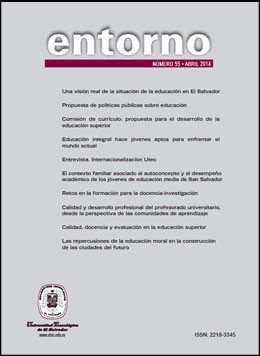Some notes on the actors of international relations nowadays
DOI:
https://doi.org/10.5377/entorno.v0i56.6265Keywords:
International relations, Governance, Political-administrative systems, Economic crisis.Abstract
This article aims to show the multiple crises of the State, and the change in the model and praxis of international relations and its actors, by highlighting a number of significant facts, which certainly represent a challenge for all political- administrative systems. These include: a) the revitalization of the political conflict due to economic reasons, b) the practice of an individualistic thinking and social Darwinism, leaving behind the principles of equality and social equity thus causing social fracture, c) the factors which emphasize the weakness of democracy as a legitimate political regime to respond to society d) a mutating process of values; d) the appearance of an attitude of “fear conservatism,” e) and the end of the classical separation between “internal politics” and “foreign policy”.
Entorno, august 2014, issue 56: 69-73
Downloads
713
Downloads
Published
How to Cite
Issue
Section
License
© Entorno
It is required that the authors transfer the right of re-production of their articles to the Entorno Journal

